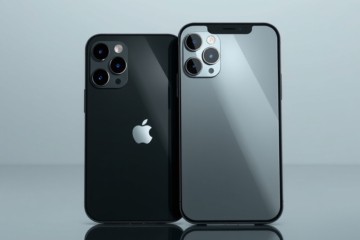Combating Phone Scams with Verified Origin
Phone scams They are a growing concern in Brazil, affecting millions of users every year.
With the rise in fraudulent calls, especially from similar-looking numbers, it's essential to understand the measures being implemented to combat this problem.
In this article, we will explore Anatel's initiative to introduce the 'Verified Origin' system by 2028, the requirement for verification seals for companies, and the effectiveness of services such as 'Do Not Disturb'.
In addition, we will discuss features in smartphones and apps that help in identifying and filtering suspicious calls.
Overview of persistent calls and phone scams in Brazil.
In Brazil, the high frequency of persistent calls and phone scams It affects thousands of people daily, making it essential for users to be aware of these fraudulent practices.
A common tactic used by scammers is manipulating caller IDs to present false information. numbers similar to the user's, increasing the chances that the victim will respond.
This is accomplished through numerical spoofing, where software alters the originating number of the call.
The impacts of these scams are not only financial, but also psychological, since users become suspicious when answering calls from work or family members if the number is not familiar.
This strategy, coupled with a growing volume of reported scams, as data from [source] indicates... Brazilian Yearbook of Public Security 2024This makes protecting communications a top priority.
Among the tactics most commonly used by scammers are:
- Connections with tampered caller IDs
- Silent calls from telemarketing systems
- Using numbers similar to those of large institutions such as banks.
Anatel's Verified Origin System: authentication against fraud.
The system Verified Origin Anatel promises to transform the way phone calls are received in Brazil.
This initiative aims primarily to combat telephone fraud, which has become a growing concern for consumers.
With the implementation of this system, it will be possible to authenticate calls directly on the user's device, ensuring that the originator's identity is legitimate.
One of the most striking features of this technology is the presence of a verification badge, which will be displayed on calls from companies that make more than 500,000 calls per month.
This provides the user with greater security in communication, as they will be able to easily recognize secure calls.
The significance of this mechanism lies in substantially reducing the number of blows, typically carried out by means of numerical spoofing.
Aiming for full implementation by 2028The operators are collaborating with Anatel to ensure that... Verified Origin be widely adopted and its effectiveness felt by the entire population.
This system not only protects against fraud, but also increases confidence in the daily use of telephony, something essential nowadays.
For more information about the Anatel project, visit the page. Anatel.
“
Verification badge required for high call volumes.
From November 17thAnatel will require companies that perform more than 500,000 monthly calls Adopt the verification badge on your calls.
The verification seal aims to authenticate the origin of the calls., increasing consumer safety and combating fraudulent practices, such as 'number spoofing', a technique in which scammers alter the originating number to deceive users.
This measure is particularly relevant in the current scenario of increasing telephone fraud, where people frequently receive calls from fake or unknown numbers.
With the implementation of the seal, users will be able to easily identify secure calls from large companies, such as banks and call centers, bringing more confidence and convenience to the service.
Additionally, this initiative by Anatel aligns with the 'Do Not Disturb' service, although the latter is aimed at blocking unwanted calls from operators and banks.
Thus, verification via the seal, which can be seen on certain mobile operating systems, represents a significant advance in consumer protection, making the telephone communication experience safer and more transparent.
For more information on specific regulations and details, please consult the Anatel's official page.
Do Not Disturb Service: scope and limitations
In Brazil, the service Do Not Disturb Me It offers consumers an effective way to block unwanted calls from carriers and banks.
Users can register their numbers for free and avoid commercial offers through phone calls.
According to the official website of Do Not DisturbThe blocking begins up to 30 days after registration, providing greater peace of mind to consumers.
However, the service has its limitations.
Although it helps block telemarketing calls from official companies, it cannot stop calls from scammers who use techniques such as... "numerical spoofing"where the original number is altered to deceive the recipient.
Therefore, fraud and scams via telephone can continue, as these calls are not made by companies legally registered in the system.
Consequently, it is crucial that users remain vigilant, supplementing this with apps that identify suspicious calls for extra protection.
Native Android and iPhone features for identifying suspicious calls.
Modern smartphones offer built-in features to identify suspicious calls.
Node AndroidThe system allows for the identification and blocking of calls from suspicious sources, with spam warnings appearing on the screen when an unknown number calls.
Already the iPhone It adopts a similar approach, enabling the identification of suspicious calls through automatic alerts.
Both systems allow users to utilize third-party applications to extend this protection.
One example of such applications is... Whoscall, which filters calls efficiently.
Furthermore, the Truecaller It now offers real-time caller ID on iOS, as mentioned in check out more.
The following table provides a quick comparison of these features:
| Resources | Android | iPhone |
|---|---|---|
| Caller ID | Available natively | Available natively |
| Automatic spam blocking | Yes | Yes |
| Integration with third-party apps | Wide | Wide |
Apps like Whoscall and Truecaller as additional barriers
Whoscall It is Truecaller They are emerging as effective solutions to combat telephone scams in Brazil.
These apps offer an extra layer of protection, essential for users who face unwanted calls.
Whoscall It works by instantly identifying and blocking unknown or suspicious numbers.
It also provides SMS message identification, filtering out potential threats even before the user answers.
Truecaller It is not far behind, standing out as a global leader in spam identification and blocking software.
Unlike other options, it also features a collaborative community where users flag numbers as suspicious, increasing the accuracy of its detections.
Both, despite being efficient, depend on updated databases, which can be a limitation given the constant use of new numbers by scammers.
Additionally, there may be a cost involved for premium features.
- Advantages of Whoscall: Immediate identification of unknown numbers and a free option available.
- Disadvantages of Whoscall: It depends on an up-to-date database.
- Advantages of Truecaller: Collaborative system and global coverage
- Disadvantages of Truecaller: You may be required to pay for certain features.
Numerical spoofing: disguising numbers to deceive users.
Numerical Spoofing It is a dangerous technique used by scammers to mask the truth. origin of a phone call.
By altering the caller ID, these criminals impersonate legitimate businesses or even family phone numbers.
The practice becomes a risk. significant for users, who may be led to provide personal information believing they were safe.
"Trust in technology has opened loopholes for scammers," warned an industry expert.
Therefore, consumers should be wary of calls from numbers... unknown or suspicious
With the introduction of Anatel's verified origin system Scheduled for 2028, the risks can be mitigated.
Meanwhile, the use of features such as caller ID apps and registration with the service... Do Not Disturb Me This can provide some protection against such scams. It is crucial to stay informed and question any call. unusual that you receive.
Silent calls and automated telemarketing systems
Silent calls frequently annoy users in Brazil, generated by systems of automatic dialing used by telemarketing companies.
These calls verify if a number is active, but often end without a response, resulting in a silent call.
This occurs when systems such as the predictive dialer They make several simultaneous calls.
If all operators are busy, the call is automatically disconnected.
An expert in the field explains: "These systems attempt to maximize the efficiency of call centers, but often result in frustrating experiences for users."
This practice, although common, raises concerns about abuse and inconvenience to consumers, an issue that Anatel seeks to mitigate through regulations.
Soon, call authentication by the system will be available. Verified Origin promises to bring more security.
In short, the fight against phone scams in Brazil is a shared responsibility between users and authorities.
With the right information and tools, we can protect our data and prevent fraud.



0 Comments